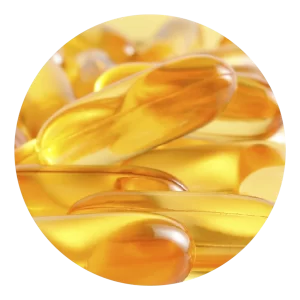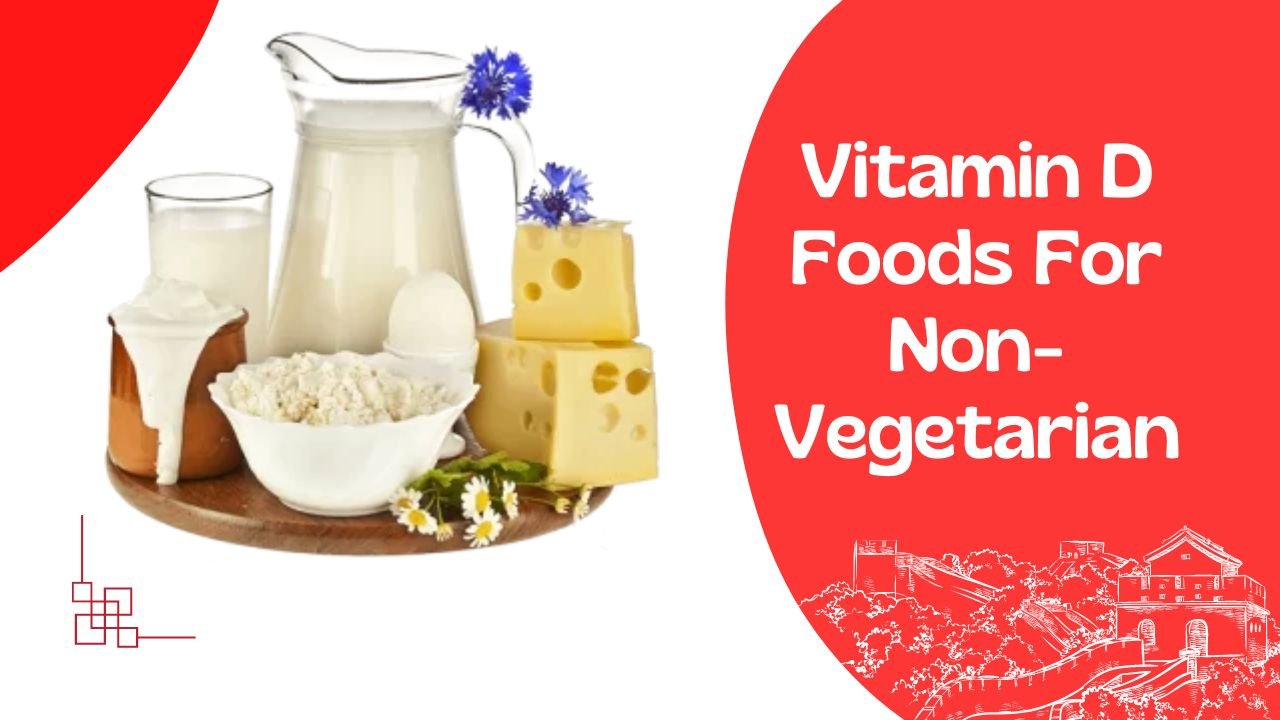You will be delighted to find that Non-Vegetarian Vitamin D Foods are readily available in nature, and this essential nutrient plays a critical role in calcium absorption and bone health. While vitamin D is synthesized by the skin through sunlight exposure, it can also be acquired through dietary sources. Non-vegetarian options rich in vitamin D include fatty fish, egg yolks, and fortified dairy products.
Fatty fish like salmon, tuna, and mackerel stand out as some of the best vitamin D sources. A 3-ounce serving of cooked salmon contains approximately 450 international units (IU) of vitamin D, covering nearly 75% of the recommended daily intake for adults. Canned tuna is also a noteworthy vitamin D source, with a 3-ounce serving providing around 150 IU of vitamin D. Other fish varieties such as swordfish, trout, and sardines also contribute to vitamin D intake.
Egg yolks represent another valuable non-vegetarian vitamin D source, offering about 41 IU of vitamin D in one large egg yolk. It’s essential to note that most of the egg’s vitamin D is concentrated in the yolk, so solely consuming the egg whites will not provide significant vitamin D.
For non-vegetarians, fortified dairy products emerge as excellent vitamin D sources. Many milk brands and some types of yogurt and cheese are fortified with vitamin D, providing approximately 100 IU of vitamin D in one cup of fortified milk. Some fortified orange juice and cereal brands also offer added vitamin D benefits.
In conclusion, non-vegetarians have access to a variety of vitamin D-rich sources, including fatty fish, egg yolks, and fortified dairy products. Incorporating these foods into your diet can help fulfill your daily vitamin D requirements and maintain optimal bone health. As always, it’s vital to consult your healthcare provider to determine your specific vitamin D needs and discuss any dietary changes you plan to make.
1. Fatty Fish:

Fatty fish, including salmon, tuna, and mackerel, stand out as exceptional sources of vitamin D. For instance, a 3-ounce serving of cooked salmon contains roughly 450 international units (IU) of vitamin D, covering nearly 75% of the recommended daily intake for adults. Similarly, canned tuna offers a good amount of vitamin D, providing around 150 IU in a 3-ounce serving. Additionally, other fish varieties such as swordfish, trout, and sardines also contain vitamin D.
2. Egg Yolks:

Egg yolks are a non-vegetarian source of vitamin D, with one large egg yolk containing about 41 IU of vitamin D. It’s important to note that most of the egg’s vitamin D is concentrated in the yolk, so consuming only the egg whites will not provide much vitamin D.
3. Fortified Dairy Products:

Most milk and some brands of yogurt and cheese are fortified with vitamin D. One cup of fortified milk contains around 100 IU of vitamin D. Some fortified orange juice and cereal brands also contain vitamin D.
4. Cod Liver Oil:

Cod liver oil is a supplement that is high in vitamin D, with one teaspoon containing around 450 IU of vitamin D. However, it’s important to speak with a healthcare provider before taking cod liver oil, as it can interact with certain medications.
5. Fortified Breakfast Cereals:

Fortified breakfast cereals are an easy and convenient way to get more vitamin D in your diet. Many brands of breakfast cereals are fortified with vitamin D, providing up to 10% of the daily recommended intake per serving.
6. Oysters:

Oysters are a delicious and nutritious food that is also a good source of vitamin D. Just 3 ounces of cooked oysters contain approximately 320 IU of vitamin D, making it one of the best non-vegetarian sources of this essential nutrient.
In conclusion, incorporating these non-vegetarian sources of vitamin D into your diet can help ensure that you meet your daily vitamin D requirements and maintain optimal bone health. As always, it’s important to speak with your healthcare provider about your specific vitamin D needs and to discuss any dietary changes.
Conclusion:
Vitamin D is an essential nutrient that is crucial for maintaining healthy bones, teeth, and immune system. Non-vegetarians can get vitamin D from various sources such as fatty fish, cod liver oil, egg yolks, beef liver, fortified dairy products, fortified breakfast cereals, and oysters. Remember to read labels carefully and choose fortified foods whenever possible to ensure you are getting enough vitamin D in your diet.
- The Benefits of Applying Curd On Hair
- How to Cure Lost Voice Overnight? Effective Home Remedies to Cure a Lost Voice Overnight
- How To Cure Lactose Intolerance? Strategies and Lifestyle To Managing Lactose Intolerance
- The Health Benefits of Onion
- 11 Effective Home Remedies for Healing Anal Fissures
- How To Cure Neck Pain Fast At Home Remedies?
- Pumpkin Health Benefits For Women And Men
- How To Eat Chia Seeds | A Guide on How to Eat Chia Seeds for Optimal Nutrition and Flavorful Wellness
- What Is Moringa and its Health Benefits?
- Lion Mane Powder: Lion Mane Powder for Maximum Results, Side Effects
It’s important to note that the vitamin D content in these foods may vary depending on the brand and how they are prepared. Therefore, it is essential to read labels carefully and choose fortified foods whenever possible.
















